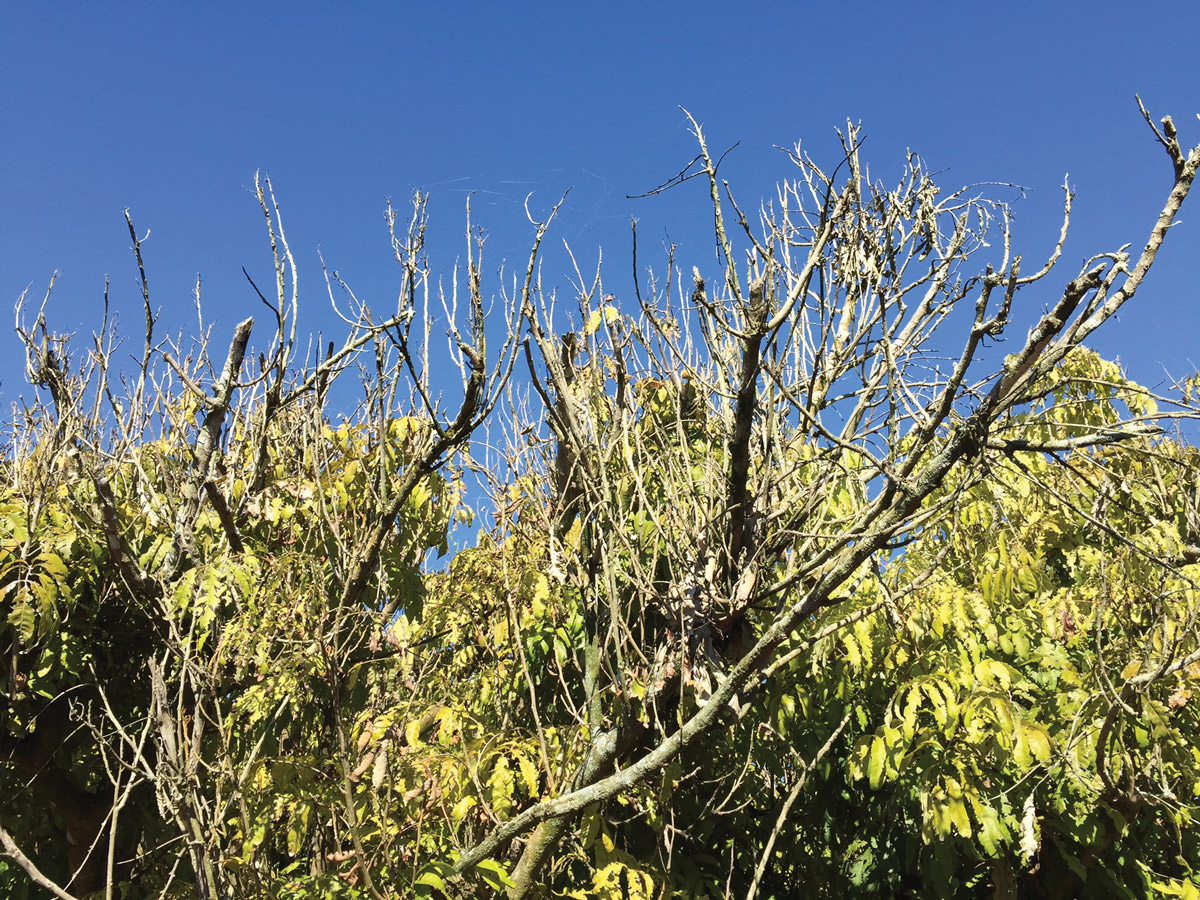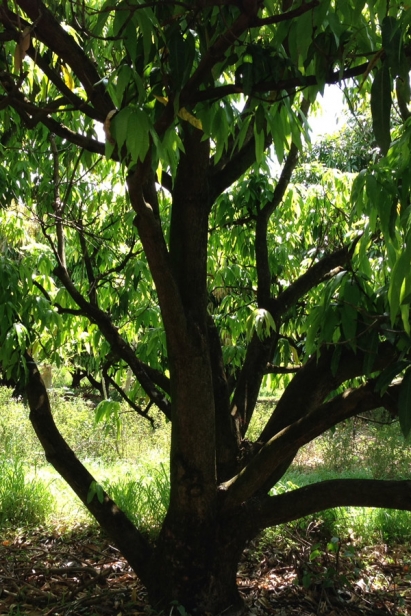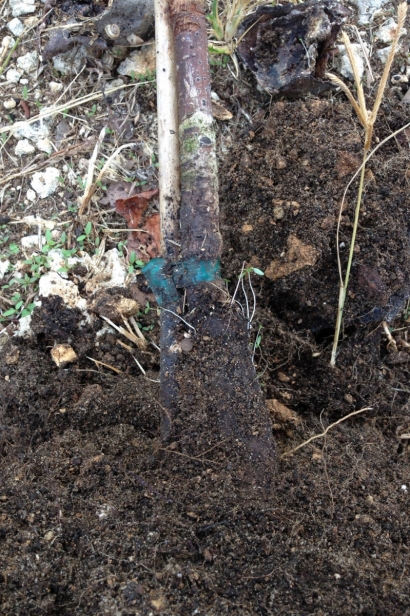Why Won't My Tree Fruit?
Whether you’re a commercial grower or a backyard tropical fruit enthusiast, if you have a fruit tree, you want fruit. After all, a mango tree with no fruit is just a shade tree.
A healthy tree must have a strong root system, adequate light, proper pruning, proper nutrition, the right age, no mechanical damage, been planted properly and proper irrigation. When the “why isn’t my tree fruiting?” question comes my way, I go into tropical fruit CSI mode and begin a series of questions designed to find out the answer.
Is the tree getting full sun? Producing fruit takes a lot of energy. Trees create their energy by using the sun through photosynthesis. Without enough sunlight, a tree won’t bloom. Without bloom, there’s no fruit. If your tree is shaded by your house or another tree, it will have trouble producing fruit.
How old is the tree? If the tree is older than three years, it should have bloomed by now, unless the tree was grown from seed. Most fruit trees are grafted, meaning they have an already-mature portion of a known cultivar – a ‘Haden’ mango, for example – grafted onto a healthy seedling. The graft accomplishes two things. First, you know the exact type of fruit you will get, as this is basically a cloning process. Second, the tree skips having to go through all of the stages of maturity and is instantly sexually mature. A tree planted from seed has to be a baby mango, toddler mango, texting mango, Snapchat mango, high school mango, college mango, married mango – and then finally the tree is old enough to fruit. So it can sometimes take up to 15 years for a tree to become mature. A grafted tree is always recommended.
Does the tree look healthy? If the tree is green and the leaves are all fully formed, it’s most likely not dealing with any issues that would stop it from blooming and setting fruit. If the tree has a trunk caliper of five inches or less, give it what I call the “shake test,” where you go out see if you can move the trunk. If the trunk of the tree moves along with its roots, that’s a sign of a weak root system, which may have been caused by too much water or a girdled root system before the tree was planted. Weak root systems often cause trees to have a difficult time getting nutrients. If the trunk moves, but the roots do not, then the root system is most likely strong.
When was the last time the tree was pruned? A fruit tree that was severely pruned in the last year often results in no flowering and fruiting for at least one year, and may last up to three years on non-production. A severe pruning causes the tree to abandon fruiting and put all of its energy into restoring the missing leaf canopy. Pruning too late in the season may also negatively affect flowering and fruiting. If a tree was pruned shortly before it was getting ready to bloom, it is possible that branches that were set to bloom were removed and will be replaced by new vegetative growth rather than bloom.
What is the irrigation schedule for your tree? If your tree is being watered too often – more than once or twice a week – that can also cause the tree not to bloom or set fruit. Too much water will either suffocate the roots and cause root rot, or it may spur the tree to grow vegetatively rather than bloom.
What is your fertilizer schedule? If the tree gets too much or too little of the nutrients it needs, this can also disrupt flowering and fruiting. Too much nitrogen causes a tree to grow vegetatively and the tree may not be able to settle down to get ready to bloom. If the tree isn’t getting the elements it needs, it may be too weak to bloom. Is the overall color of the tree good? If it is, then the tree is most likely getting all it needs in the way of nutrients.
What do you see when you look at the base of the trunk? If you see mechanical damage from string-trimmer hits, or if the tree is planted too deep, these contribute to the tree's unhealthiness. After asking all of the above questions, I see where the deficiency is and prescribe the correct remedy.
Questions on tropical fruit pests? Call a UF/IFAS extension agent at 305-248-3311. Homeowners: Adrian Hunsberger (ext. 236); commercial tropical fruit growers: Jeff Wasielewski (ext. 227); and commercial vegetable growers: Qingren Wang (ext. 234).






